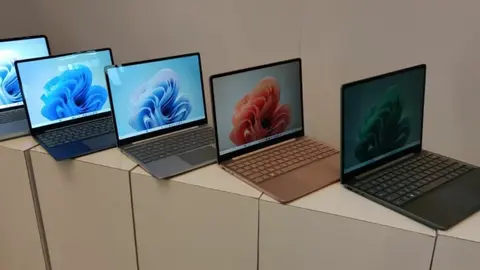India’s Trade Minister, Sunil Barthwal, announced on Friday, October 13, 2023, that India has decided not to put any restrictions on the import of laptops and other electronic devices. In August this year, India announced new import restrictions. The restrictions imposed import license requirements on notebooks, tablets and other products. However, the latest news is that the Indian government has now decided to abandon this import restriction plan. The initial plan would have had big implications for brands such as Apple, Samsung, Dell, Lenovo, and HP.
According to Reuters, Indian Trade Minister Sunil Barthwal publicly stated at a press conference on Friday. He said, “There will be no restrictions on laptop imports, but the government will pay close attention to the import situation.”
Reasons behind the government’s decision to impose import restrictions
The government’s decision to impose import restrictions was aimed at bolstering India’s laptop manufacturing. The Indian government has been trying to encourage local manufacturing in the tech sector through its “Make in India” campaign. It claims that this will promote local production and create more jobs for Indians. India’s electronic imports stood at $19.7 billion in the April to June period. This is an increase of 6.25% from the same period in 2022.
Opposition to the import restrictions
India announced this import restriction strategy on August 3. It was originally planned to take effect immediately. However, after receiving pressure from many parties, it announced a delay of three months. However, it eventually announced a delay of one year. The licensing system for imports was introduced with the intention of guaranteeing the entry of “trusted hardware and systems” into India. After an open criticism from Washinton as well as industry experts, the government had to track back. The enforcement of these limitations had been put on hold by the government and has now been scrapped.
Lawrence Loh, director of the National University of Singapore’s Centre for Governance and Sustainability, said
“They should respect free trade and uphold free markets — protectionist measures will not help in economic development. This is especially true in the challenging global economic setting beset by high inflation,”
He adds that nations must uphold the interest of their people but it should be done in a proper way.
Why the opposition?
India’s previous regulations allow brands to freely import products such as laptops. After the new laws take effect, brands need to obtain special licenses if they want to continue selling these imported products in India. Industry executives said that India’s implementation of the import licensing system means extending the waiting time for each product to enter the Indian market. For this reason, brands will have to apply well in advance to meet sales demand during the festival. They claim this will affect the usual flow of relevant products to the Indian market. This is one of the major reasons for the opposition.
India’s electronics department is currently proposing to simplify the import registration process. One of the officials said that the new “import management system” will require companies to obtain a “registration certificate”. They will need this to import notebooks, tablets and PCs instead of the previous plan. However, there is no conclusion for the new order at the moment.
Exceptions to the import restrictions
According to the government’s prior announcement, only those with a valid license would be permitted to import the restricted items. However, certain exceptions were made, including tasks like R&D, testing, benchmarking, evaluation, repair, re-export, and product development.
The commerce ministry clarified its stance on the import curb on laptop devices on Friday. It states that there are “no restrictions as such”. The government only wants importers to be on close watch. The officials did not disclose details about the new plans. According to Directorate General of Foreign Trade Santosh Kumar Sarangi, talks are ongoing for a new order. He said that this new order on laptop imports will be announced by the end of October.
China weighs in
While this will affect several non-Chinese brands, it will affect China. This is because most of the brands that the restriction will affect have their goods made in China. For this reason, China had its say in the development. According to experts from China, the import restriction by India is a “protectionist policy”. They claim that it aims to curb imports from China.
However, India’s Deputy Minister for Information Technology, Rajeev Chandrasekhar said India remains open to Chinese investment.
At a meeting of BRICS trade and economy ministers on Monday, China’s Commerce Minister Wang Wentao urged BRICS countries — Brazil, Russia, India, China, and South Africa — to strengthen cooperation and preserve multilateralism.
Wang said at the virtual meeting, which was also attended by India’s Minister of Commerce and Industry Piyush Goyal.
“China stands ready to take actionable steps to promote cooperation within BRICS in the areas of trade and economy,”
Wang’s comment is noteworthy in the context of India barring computer imports, according to Saikat Sinha Roy. Roy is an economist at Jadavpur University in West Bengal. He claims that it is crucial for both countries to collaborate given their trade complementarity.
Final Words
India’s decision to reverse its previous decision on laptop import restrictions is a welcome move for companies such as Apple, Samsung, Dell, Lenovo, and HP. The government’s decision to impose import restrictions was aimed at bolstering India’s laptop manufacturing, but it faced opposition from the industry and criticism from Washington. The government’s clarification that there are “no restrictions as such” is a positive development, and the industry is waiting for the new order on laptop imports to be announced by the end of October.
Follow Gizchina.com on Google News for news and updates in the technology sector.
